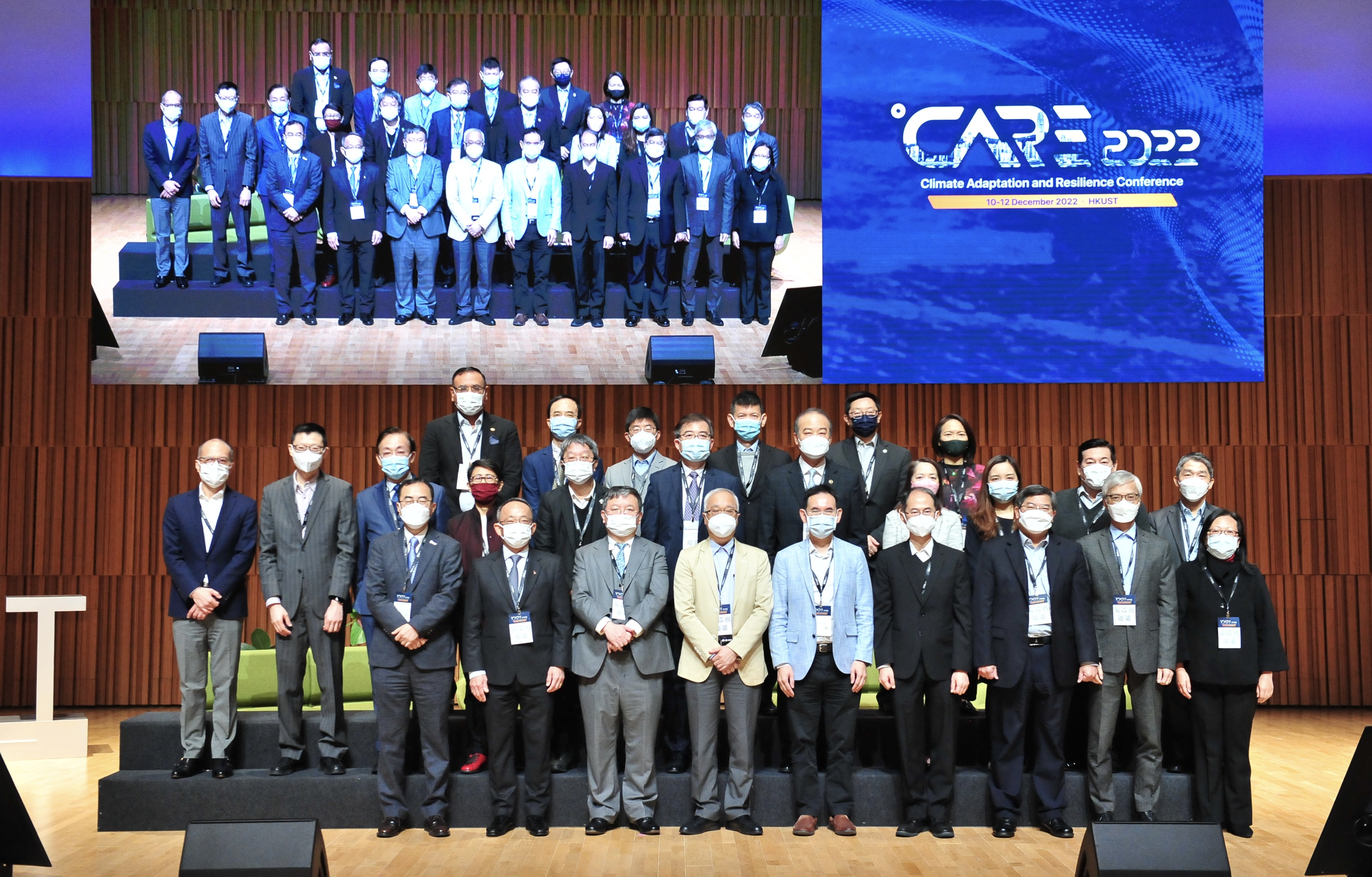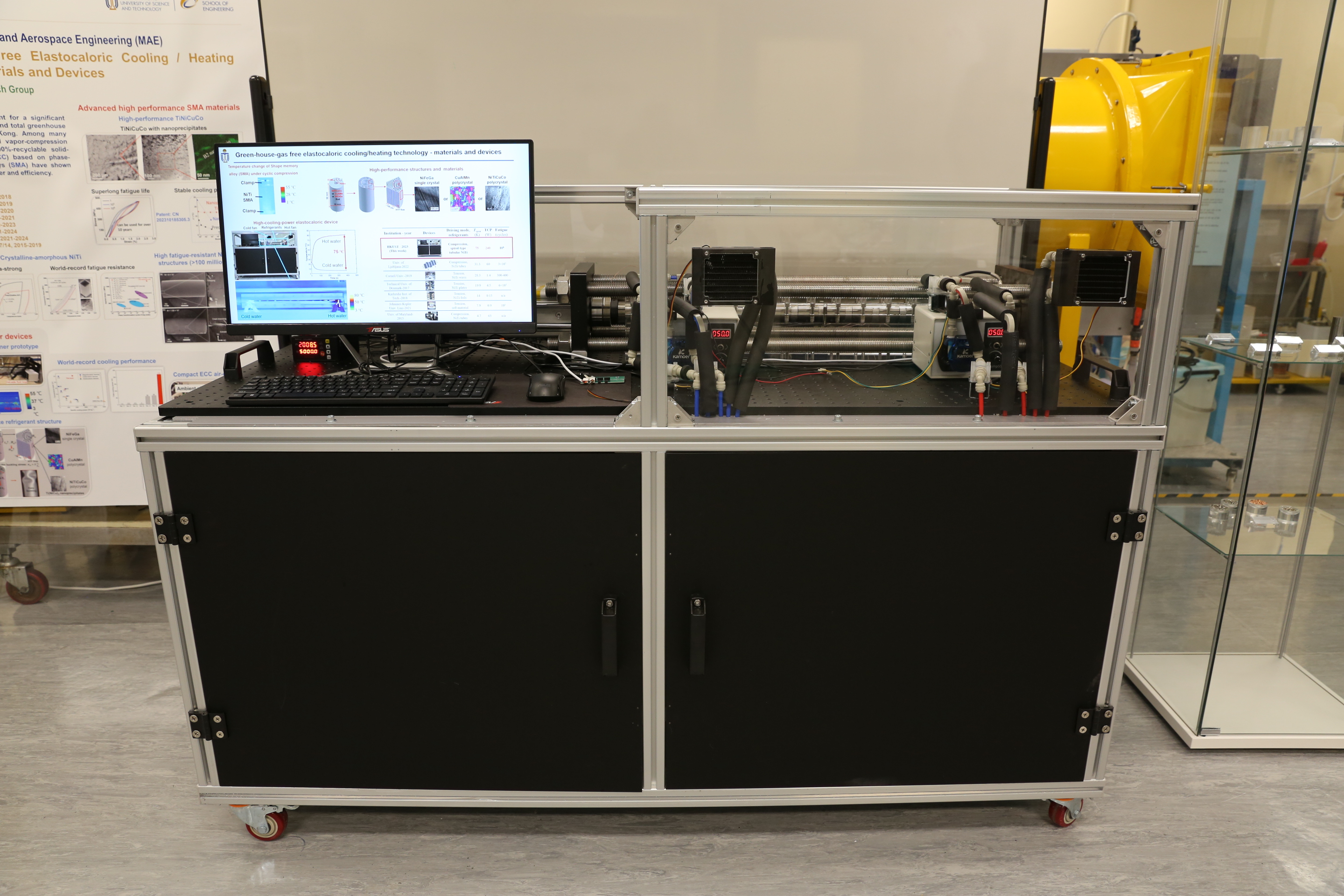
SDG 13: Climate action
To combat climate change and its impacts, HKUST recognizes the urgent need to mitigate greenhouse gas emissions, adapt to changing climate patterns, and build resilience. Under HKUST’s 2028 Sustainability Challenge we set out the operational strategies and tactics to reduce our greenhouse gas emissions with the goal of reaching net-zero emissions by 2050. We also recognize that the solutions we need to reach this ambitious goal may be in early stages of development and are committed to funding and supporting innovative climate action research.
Curriculum
93 related courses were offered in the 2021-22 academic year.
Research
From 2018 to 2022, HKUST published 250 research papers specifically related to SDG 13, making significant progress in driving the development of sustainable cities and communities.
Energy and Greenhouse Gas Reduction Plan
Our HKUST 2028 Sustainability Challenge sets out our Energy and Greenhouse Gas (GHG) reduction goals aiming to exceed the Hong Kong government energy target by reaching a 15% reduction and reduce GHG emissions by 40% by 2028, and net-zero emissions by 2050. We achieve these goals through incremental energy conservation measures as well as cultivating innovations in climate technologies through the Smart Sustainable Campus as a Living Lab Initiative which includes the Bridge Gap Fund.
Climate Adaptation & Resilience Conference 2022
The Climate Adaptation & Resilience Conference (CARE2022) brought together officials, business executives, financiers, investors, technologists, and climate action practitioners to discuss Hong Kong's adaptation and resilience planning in the face of climate change. The conference emphasized the importance of integrating climate mitigation and adaptation efforts and called for government involvement, policy alignment, and financial support.

December 2022: CARE2022 Day 1 Science to Policy Day
Industry Engagement on Climate Action
HKUST’s Institute for the Environment (IENV)is an interdisciplinary research institute that addresses environmental challenges by engaging academic, industry, and non-governmental stakeholders on climate action. Together with the Hong Kong Institute of Certified Public Accountants, the IENV organized a webinar to address theTCFD-based reporting of capacity to transition to net-zero carbon emissions.
Sustainable Smart Campus as a Living Lab
The Jockey Club Global Graduate Tower (GGT) Smart Campus installed smart meters that provide real-time energy data to residents, raising awareness of how their daily usage patterns can impact their energy consumption.
The Low-Carbon Elastocaloric Fridges and Air Conditioners for Sustainable and Smart HKUST project introduces the solid-state elastocaloric refrigeration technology to harness the potential of phase-transition shape memory alloys, offering a zero-GHG-refrigerant alternative that is fully recyclable. By eliminating the use of greenhouse gas refrigerants, this technology significantly reduces carbon emissions while maintaining exceptional cooling power and efficiency.

Innovations in cooling technology: Low-carbon elastocaloric device, a Sustainable Smart Campus as a Living Lab project